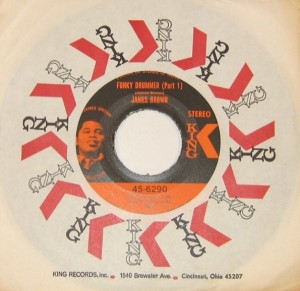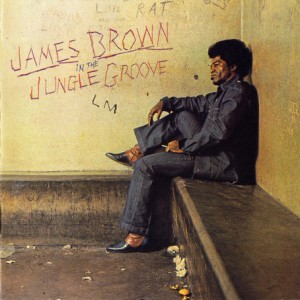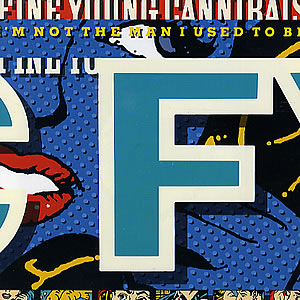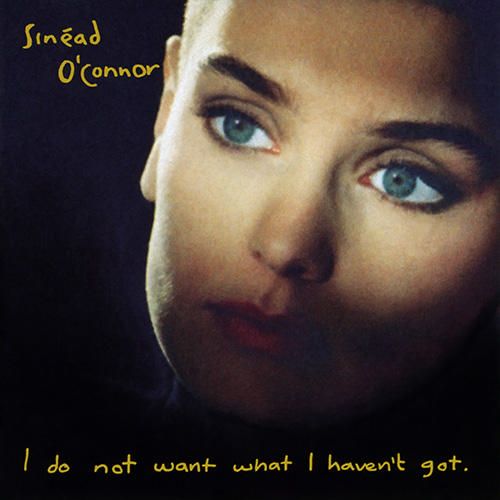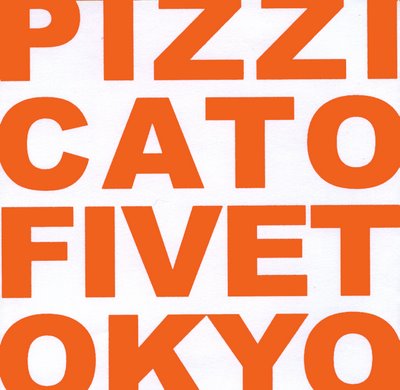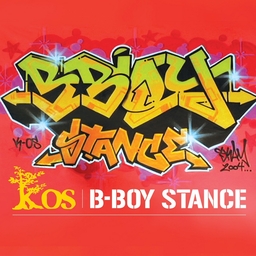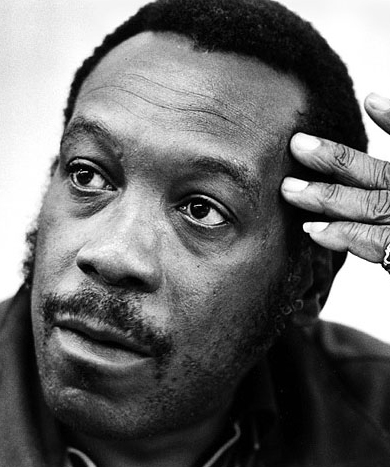Posts Tagged K-Os
Sound Of The Funky Drummer
Posted by Gavin Bradley in Mixing, Playing, Production, Publishing on November 18, 2009
1. At a 1969 recording session drummer Clyde Stubblefield played a beat on a James Brown song that came to be called ‘Funky Drummer’.
The beat was so in-the-pocket that in the middle of the song Brown asks the rest of the band to lay back and give Stubblefield an 8-bar drum break to really sink into the groove.
The track was released, split in half, on two sides of a 7″ single in 1970 but was never included on an album.
2. Some James Brown rarities and remixes were culled together in 1986 and released on a compilation called ‘In The Jungle Groove’. For the first time ‘Funky Drummer’ was available in its uninterrupted form, clocking in at 9:15.
The compilation also included a 3-minute Funky Drummer ‘Bonus Beat Reprise’ put together by New York DJ Danny Krivit which was essentially the cleanest and deepest bar of Stubblefield’s solo jam looped relentlessly, peppered only with the occasional guitar jab or James Brown vocal grunt to mark time.
3. Producers the world over knew what this Krivit re-edit was for.
Aside from a critical mass of rappers including Biz Markie, Big Daddy Kane, Ice T, Ice Cube and De La Soul jumping on the loop as the basis of new tracks, it began showing up as a rhythmic grid laid over pop songs far and wide. From 1988-1990 in particular it was an undeniable bastion of street cred for artists, and it is thought to be the most-sampled recording in history.
Fine Young Cannibals were among the first to arrive on the scene with the sweeping ‘I’m Not The Man I Used To Be’ from ‘The Raw And The Cooked’, lightly funkified with muted guitar riffs weaved into a sped-up Stubblefield groove.
Sinead O’Connor’s ‘I Am Stretched On Your Grave,’ from her seminal ‘I Do Not Want What I Haven’t Got’, LP was unapologetic about its use. Bottom-heavy and slightly slowed, the loop was upfront, holding the track down under O’Connor’s acapella vocal for over a minute before synth bass and eventually a celtic violin riff are introduced.
Some of the other best-known upfront overlays of the beat from that period include ‘Mama Said Knock You Out’ and ‘The Boomin’ System’ by LL Cool J, as well as ‘Freedom 90’ and ‘Waiting For That Day’ by George Michael.
4. Although the loop became fused with the aesthetic of its golden period, it hasn’t gone bad. The straight-up funk of it is impossible to deny, so it has continued to appear in a steady trickle, the producers dealing with its oversaturation in various ways.
Perhaps wanting in on the action while still recognizing its burgeoning overuse, the Beastie Boys threw in one dirty bar of the loop at the end of ‘Shadrach’. On 1993’s ‘Reachin’ (A New Refutation Of Time And Space)’ Digable Planets tastefully reinvented it by chopping it up and weaving it subtley into the jazzy beats of ‘Where I’m From’ and ‘Swoon Units’.
Japan’s Pizzicato Five did some crafty cut-and-paste on ‘Baby Love Child’ by laying the loop over an interpolation of the chords of the Righteous Brother’s ‘You’ve Lost That Loving Feeling’. (If the song title is meant to be a mash-up of ‘Baby Love’ and ‘Love Child’ by the Supremes, we really have a mutt of a track here.)
Genre-defying artist K-Os brought the loop full circle on 2004’s excellent ‘Joyful Rebellion’ LP by putting an aggressively distorted Funky Drummer upfront again on ‘B-Boy Stance’–as if to credit it, at least partially, as the roots of his rap attachment.
The only other drum loop that may approach the ubiquity of the Funky Drummer is the drum break on ‘Amen Brother’ by The Winstons. Virtually responsible for the entire genre of music known as Drum & Bass (or Jungle) the aural etymology of the sample, from inconspicuous b-side break to 24-hour assault on Drum & Bass internet radio stations, is tracked brilliantly in this video by Nate Harrison.
So…what about Clyde? The most-sampled man in history is in need of a liver transplant, but his musician friends have had to rally to raise the funds for him.
Since James Brown regularly taught his band the songs in his head part by part, it’s unclear whether Brown or Stubblefield came up with this beat. But because rhythmic contributions to music are not considered copyrightable ‘intellectual property’ in the same way melody and lyrics are, Stubblefield would not have been credited as a writer on the song either way. As such, beyond the original session fee, he wasn’t entitled to further royalties.
This lack of respect, at least legally, for rhythmic innovation is probably rooted in the fact that the system of notating chords and melody developed centuries ago in Europe is not equipped to capture rhythmic ‘feel.’ Because a drum beat lacks melody, it’s not considered unique enough to copyright. It’s interesting to note, then, that over the past 30 years popular music has become more and more dominated by rap, with hooks that are gradually becoming more rhythmic…we actually value melody less than we used to.
It’s also interesting to see that the unstoppable appropriation of audio and video in our new digital world has given rise to new fair-use philosophies such as that of Creative Commons licensing. Some people believe that a degree of freedom with intellectual property creates a healthy creative climate.
Still, in recent years the American Federation Of Musicians has developed something called ‘Neighbouring Rights’ in a bid to channel royalties to the individual players on recordings. Had this system existed at the time the Funky Drummer was laid down on tape, Clyde Stubblefield might have been up there on the Forbes list.
Amen Brother, B-Boy Stance, Baby Love, Baby Love Child, Beastie Boys, Big Daddy Kane, Biz Markie, Clyde Stubblefield, Creative Commons, Danny Krivit, De La Soul, Digable Planets, Fine Young Cannibals, freedom 90, Funky Drummer, george michael, I Am Stretched On Your Grave, I Do Not Want What I Haven't Got, I'm Not The Man I Used To Be, Ice Cube, Ice T, In The Jungle Groove, Intellectual Property, James Brown, Joyful Rebellion, K-Os, Listen Without Prejudice Volume 1, LL Cool J, Love Child, Mama Said Knock You Out, Neighboring Rights, Neighbouring Rights, Paul's Boutique, Pizzicato Five, Reachin' (A New Refutation Of Time And Space), Shadrach, Sinead O'Connor, Swoon Units, The Boomin' System, The Raw And The Cooked, The Righteous Brothers, The Supremes, The Winstons, This Year's Girl, Waiting For That Day, Where I'm From, You've Lost That Lovin' Feeling
The Polaris Music Prize
Have you noticed in recent years that Beyoncé and Alicia Keys have performed on every major American awards show? As much as I respect Ms. Keys (and am not particularly offended by Beyoncé) the only way I can explain their awards-show ubiquity over, say, The Roots, is that they’ve made it into The Club…an elite club of ‘artists chosen to be promoted by the majors’.
Widely accepted as the institutions that bestow the highest honours in music, England has the Brit Awards, America has the Grammys and Canada has the Junos. As viewers we watch thinking that we’re seeing musicianship rewarded…yet it always feels curiously like we’re seeing advertisements for pop albums we are expected to buy.
But last week I attended a refreshing and inspirational night here in Toronto: the Polaris Music Prize gala. There’s been an alternate reality taking shape in the world of music awards: since 1992 the UK has had the Mercury Prize, since 2001 the USA has had the Shortlist Music Prize and since 2006 here in Canada we’ve had Polaris.
All three Prizes are similar: the award goes to the band responsible for the best album released that year. Not the album that sold the most copies, but the best album…determined via large numbers of music critics submitting lists and/or voting. For the American Short List prize, nominees’ albums must not have reached Gold sales status (500,000 copies).
The Polaris winner gets a $20,000 cash prize, often used by the band to fund their next endeavor. This year’s ‘long list’ of 40 nominees included veteran folkster Leonard Cohen and newly-indie rapper K-Os. The narrowed shortlist of 10 bands performed live at the gala, simulcast on MuchMusic and CBC radio. CBC host Jian Ghomeshi was one of ten Canadian luminaries that each introduced a nominee, waxing personal about how the album affected them.
At one point a food-fight broke out between the tables of the obvious forerunners: celebrated new wave band Metric, Somalian-born rapper K’Naan and esoteric rock band Patrick Watson–who won the audience over by performing as a marching band weaving through the audience, wearing backpacks that sprouted bouquets of lights over their heads, the singer manipulating his vocal with effect pedals hanging from his neck, the rest of them handing out cookie sheets and wooden spoons for the audience to bang together as a room-wide rhythm section.
Newfoundland’s Hey Rosetta! stunned the audience with a performance that came in like a lamb and out like a lion, featuring a huge ensemble of supporting musicians crafting a painstaking climax around singer Tim Baker’s unmistakeable voice. The surprise of the evening came at the end, however, when hardcore punk band Fucked Up took the stage as the final performers and then walked away with the prize. Indeed, we’re looking at an unbiased jury process here!
I was shocked at the sheer amount of talent laid out before us that night. I was exceedingly proud to be doing music in Canada, which the world has begun to recognize is a disproportionate exporter of great music. Ask me if I cared about the Grammys after that…?
Alicia Keys, Beyoncé, Brit Awards, Grammy Awards, Hey Rosetta!, Jian Ghomeshi, Juno Awards, K'Naan, K-Os, Leonard Cohen, Mercury Prize, Metric, Patrick Watson, Polaris Music Prize, Short List, The Roots
-
-
Archives
- April 2013 (1)
- August 2011 (1)
- November 2010 (1)
- August 2010 (3)
- July 2010 (1)
- March 2010 (1)
- January 2010 (1)
- November 2009 (1)
- October 2009 (2)
- September 2009 (1)
- August 2009 (1)
- July 2009 (4)
- June 2009 (7)
- May 2009 (10)
-
Meta
